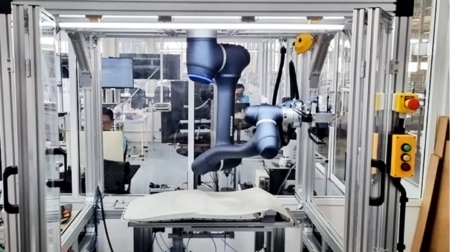Losses in connection between mobile devices and a warehouse management system (WMS) cost the average warehouse more than £160,000 each year, according to a report from terminal emulation solutions provider StayLinked.
The research, undertaken by The Essential Agency on behalf of StayLinked, was carried out in March 2024 and surveyed warehouse staff from the US, Canada and the UK.
It found that more than 30% of workers claimed to experience a dropped session at least once per hour, incurring an average of 50 minutes of lost productivity per day in time spent resolving dropped sessions. The average cost of dropped sessions per worker, per day was calculated as £13.02 meaning that, for a warehouse with 50 workers, this equates to £650.91 a day and £162,727.61 a year.
Justin Griffith, StayLinked’s chief technology officer, explained: “From our calculations, if dropped sessions were eliminated throughout the entire industry, £700 million could be saved.”
Griffith continued: “The going data is that somewhere between 60% and 80% of warehouse workers are using terminal emulation to do their work, so they’re using a mobile computer running terminal emulator software connecting to a warehouse management system to do their work.
“There’s some industries that are very entrenched in it, and some that are not. For example, retail is moving away from that technology, but manufacturing, transportation, logistics, warehousing – they still have an incredibly high concentration. So, there’s an oddity to that particular technology.”
He described how, for example, a 500-unit pick could be disrupted halfway through by anything from a Wi-Fi disconnection to a device’s battery running out and all progress in that pick could be lost. This wastes time and could be incredibly disruptive to a business, depending on the size of the pick and the work already undertaken that might need to be redone.
“In this study what we found was that this happens all the time, every day to every user, because there’s no such thing as a pristine network,” Griffith noted.
In addition to revelations about the cost of dropped sessions on warehouse operations, the report also found issues surrounding a lack of awareness of dropped sessions and their impact on productivity.
Many workers reportedly consider dropped sessions a result of hardware issues, blaming mobile devices. Of those surveyed across all regions, 47% of warehouse workers said they solely blame their devices as the culprits of their lost productivity.
This issue with awareness may extend to management level, with 24% of workers believing that their managers would carry out a tech refresh as the go-to solution for these dropped session dilemmas.
The report also claims that 29% of workers believe that management dismisses the issue as a minor interruption, while 17% felt that they themselves would be blamed for the issue.
Griffith said: “It’s an awareness thing, this is one of those things where the technology has been around for so long that people assume [dropped sessions] are just the cost of using it.
“If you have had dropped sessions for 30 years or something, you would assume that this problem is related to all these environmental things, and you’re waiting for the next great leap in Wi-Fi coverage, or you’re waiting for the next great leap in battery tech thinking that would solve the problem.
“So a lot of it has to do with awareness of the underlying technology and frankly, terminal emulation isn’t cool enough to talk about in earnest.”
Productivity losses aren’t the only consequence of frequent dropped sessions; they can sometimes result in a loss of data, which can have a real impact on both an individual worker and the overall business if the data is unable to be restored.
Furthermore, the frustration of dropped sessions can impact staff morale, which in turn can have a negative effect on employee retention, which is especially important today as staff shortages persist as a key issue in the logistics industry.
Griffith explained: “When you look at things like device abuse, people don’t abuse devices for no reason. In fact, they don’t even abuse them because they’re broken. They abuse them because they’re broken and they don’t know how to fix it. So they’re trying anything at this point. It has a huge impact on morale when there are these odd issues that happen.”








